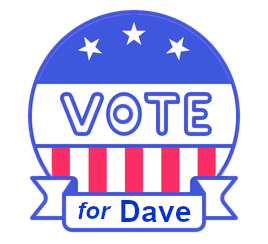► Operations – Occupying 3 floors of the Key Bank Building, Downtown, it coordinates and promotes virtually all proposed “development” in the city and region (it’s all about real estate speculation). For 80 years, it’s functioned as an unelected corporate state telling the elected officials what to do. It uses aliases, such as Pennsylvania Economy League, and is known to resort to subterfuge to get its way. It's extensive reach permeates the entire public sector, as even the non-elected public officials do their bidding.
► Leadership – Includes the heads of foundations which now hold the money of the original founders; heads of banks and major corporations; heads of universities, hospital/health care networks, and other major institutions; and occasionally a few noteworthy individuals, using their good names to full effect. Then beyond the official listings, there are also the unnamed wealthy influencers who tend to be heirs to their own share of the founders' fortunes.
► Staff – A large staff operates with a multi-million dollar budget, funded by governments that pay the Conference to tell them what to do. Collectively their efforts manage the Conference Agenda of projects, shepherding and promoting them until they receive their approvals and acquisition of public funding.
► The Agenda – At the center of all is a list of proposals seeking approvals and funding, without them the Conference will whither and die as a feckless paper tiger. – Pittsburgh Mayor Pete Flaherty knew how to handle the Conference. He gathered all his staff in the Mayor’s large conference room to receive the Allegheny Conference’s marching orders. When they finished, Pete thanked them, walked them to the door, and, closing it behind them, turned saying: “Now, what are we going to do?” Their Agenda totally ignored, by the time Pete left office the Conference had become ineffective. Unable to deliver the public approvals and subsidies needed for the Agenda’s speculative projects, it lost so much support, there was talk at the time of it disbanding.
The Agenda is sacrosanct. It sustains and enables the Conference’s existence.
It must not be deviated from, despite any harm caused, or nobody will trust it can deliver.
► Conference Players – These are largely speculative interests hoping to get theirs by pushing the Conference Agenda. In 1996, Harold Miller, at the time the President of the Allegheny Conference, said to me, “David, what you need to do is get with the program and help push it through. Then after you’ve been doing that for a while, you’ll have an opportunity to put your item on the Agenda and get yours.” – The players push the Agenda, primarily by funding the election campaigns of public officials whose votes are needed to provide the approvals and public subsidies necessary for the Agenda items.
When it comes to anything public:
If it makes no sense, it’s most likely making dollars for some Conference players!
As lesser players, the non-profits and community organizations are expected to either promote the Agenda or at least sit quiet and stay out of the way – if they want to continue getting foundation funding.
► Elected Officials – The majority of local campaign funding comes from real estate speculation interests. The public officials are aware of who pays and know what they are expected to do. In doing the Conference’s bidding, elected officials are the ultimate Conference operatives. – Early in his career, US Congressman Bill Coyne said to me “I like your ideas. Where does the Allegheny Conference stand on them?” When I said I didn’t know, he admonished, “You go get their approval first, then you come talk to me!” Walking alone with him in Squirrel Hill at the end of his career, he confided, “Well, during my time in office I took my direction from the local leadership,” i.e., the Conference.
✓ I am not a Conference player – I’ve been told the Conference considers me to be their number one obstacle. I’ve challenged their harmful proposals and actions, in court if necessary. I’ve stood up for those who don’t know how to or otherwise can’t do it by themselves. My ability to help is limited now, but if elected to City Council, it will greatly empower my advocacy for everyone’s well-being.
